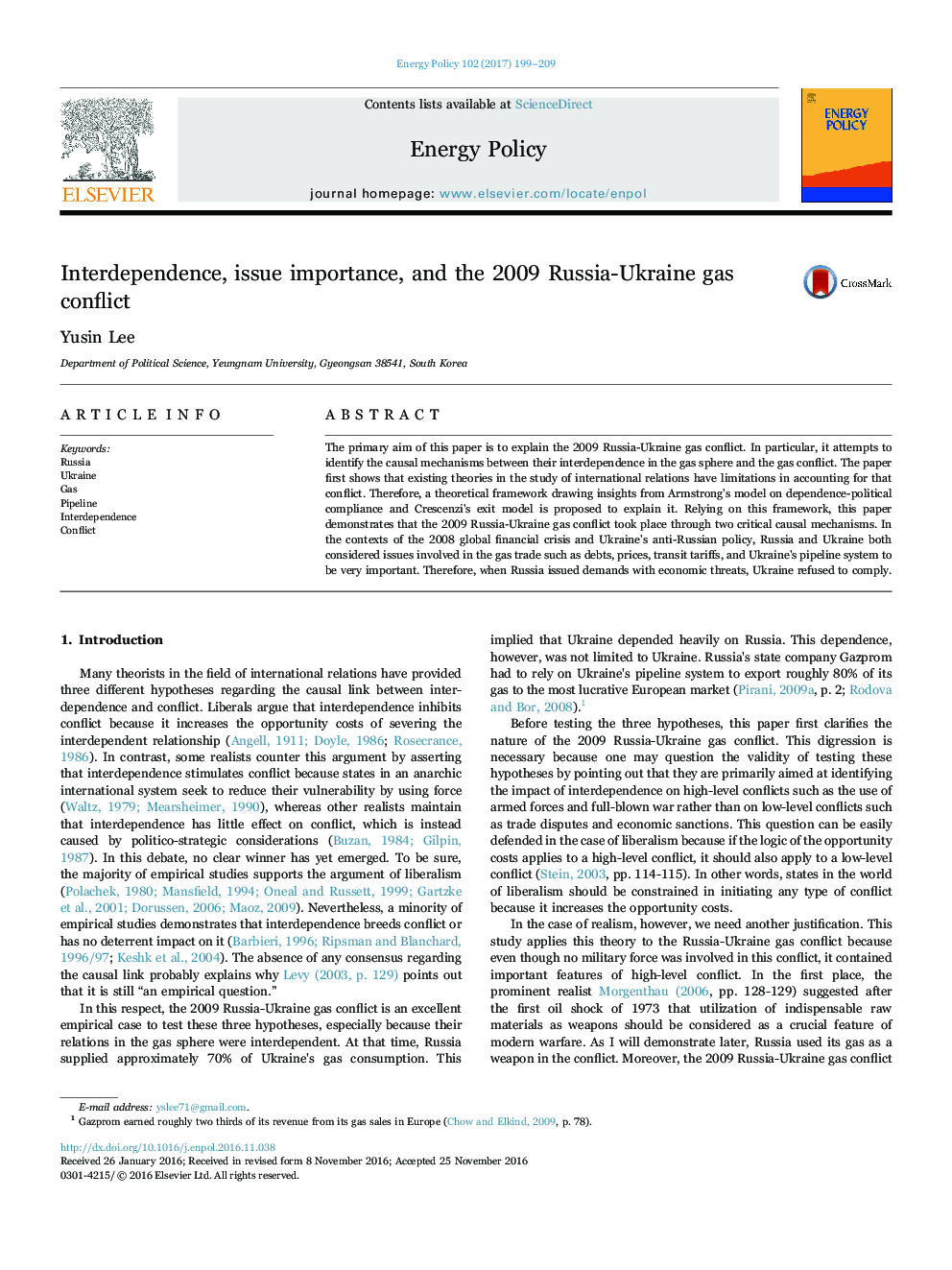| Article ID | Journal | Published Year | Pages | File Type |
|---|---|---|---|---|
| 5106197 | Energy Policy | 2017 | 11 Pages |
Abstract
The primary aim of this paper is to explain the 2009 Russia-Ukraine gas conflict. In particular, it attempts to identify the causal mechanisms between their interdependence in the gas sphere and the gas conflict. The paper first shows that existing theories in the study of international relations have limitations in accounting for that conflict. Therefore, a theoretical framework drawing insights from Armstrong's model on dependence-political compliance and Crescenzi's exit model is proposed to explain it. Relying on this framework, this paper demonstrates that the 2009 Russia-Ukraine gas conflict took place through two critical causal mechanisms. In the contexts of the 2008 global financial crisis and Ukraine's anti-Russian policy, Russia and Ukraine both considered issues involved in the gas trade such as debts, prices, transit tariffs, and Ukraine's pipeline system to be very important. Therefore, when Russia issued demands with economic threats, Ukraine refused to comply.
Related Topics
Physical Sciences and Engineering
Energy
Energy Engineering and Power Technology
Authors
Yusin Lee,
